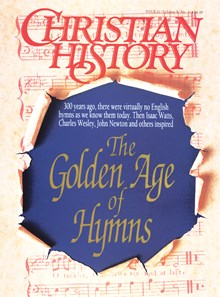



In addition to the full archives of Christian History, CT subscribers also receive:
Already a CT subscriber? Log in

April 26, 1521: After Charles V promises to take firmer measures against his doctrines, Luther leaves the Diet of Worms. A month later, his teachings are formally condemned (see issue 34: Luther's Early Years).
April 26, 1877: Residents of Minnesota observe a state-wide day of prayer, asking deliverance from a plague of grasshoppers that had ruined thousands of acres of crops. The plague ended during that summer.
April 26, 1992: The bells of the Ivan the Great Belltower in Saint Basil’s ...
